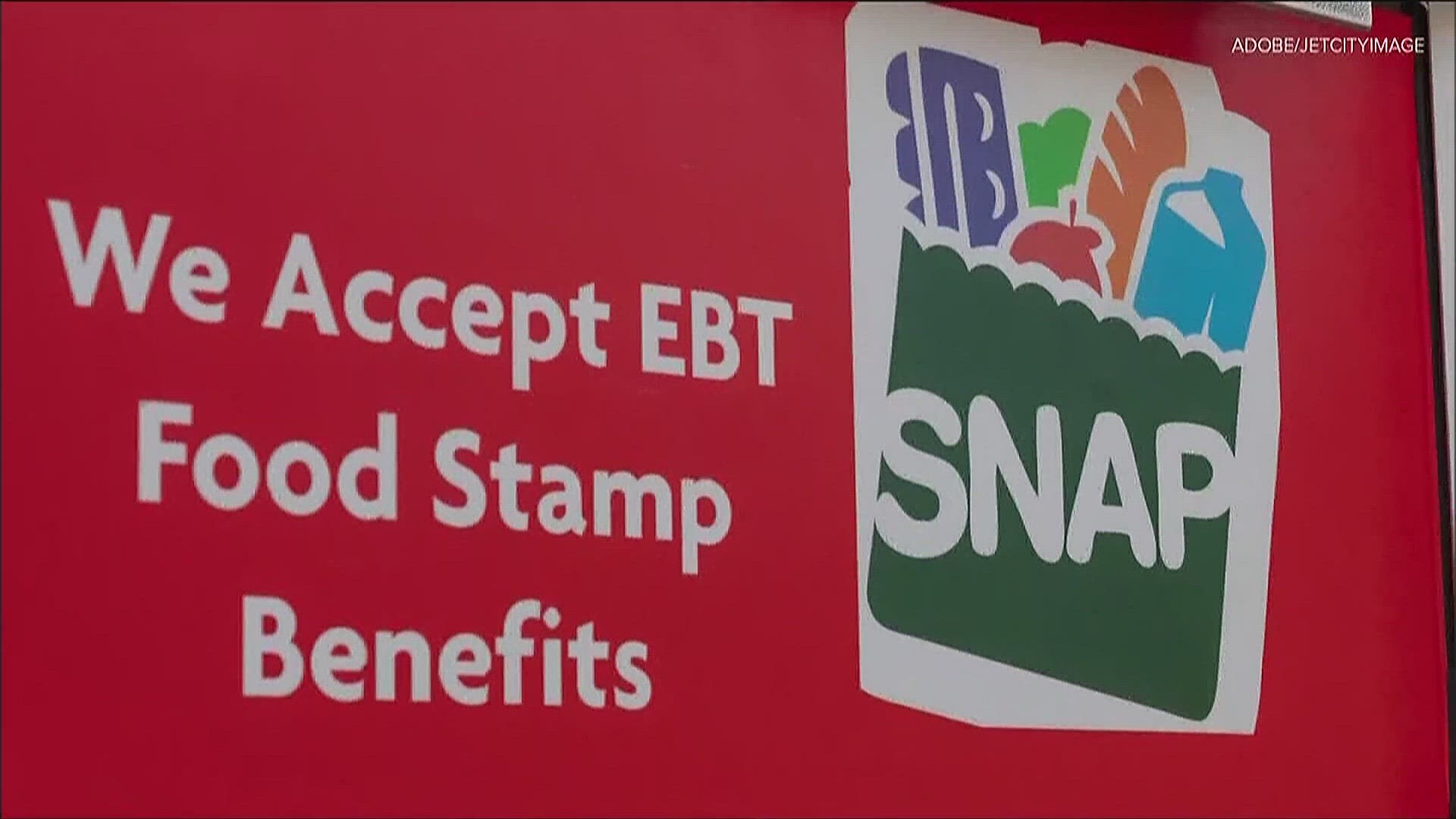ATLANTA — The waiting game continues for thousands of Georgia families who need their SNAP benefits to feed their families, and one lawmaker now has a message to families stuck in limbo: don’t give up.
11Alive spoke with state lawmakers including Representative Kim Schofield (D-63) who said she is fielding calls and emails from constituents who are hurting as they try to get answers about their food benefits, to no avail.
“Our constituents were saying that they had problems getting on the system. There was a lack of follow-up when they had questions, and so they were turning to us to get some resolve and find out what do they do next,” Schofield told 11Alive News. “People should never be caught in the quandary of how to figure out and navigate their benefits. This is something that the state should have an adequate supply of people, resources and ambassadors to get people through the answers that they need.”
Schofield said that’s especially true for SNAP and the vulnerable group the federal food assistance program serves. She said she and fellow lawmakers have spoken with the Georgia Department of Human Services staff about the persistent delays.
“At that point, we were told that they had hired a number of new people,” Schofield shared. “But when you look at the amount of time that it takes to get certified to do these programs, and you have two sets of people working on the same programs, Medicaid and SNAP, obviously there is going to be some gaps and there are going to be some lag times in which the people were suffering.”
The SNAP benefits backlog has impacted Georgia families on and off for a year now as the Georgia Department of Human Services struggles to process cases within federal guidelines. Since January, GA DHS has hired more than 900 caseworkers, per a spokesperson, but there’s no timeline for fixing the backlog.
“We are actively working to resolve it, and to improve output to ensure that the backlog doesn’t return and the agency is more able to respond to substantive changes in volume moving forward,” a spokesperson stated in response to 11Alive’s questions this week.
The frustration for families is often tied to the obstacles of reaching a caseworker, with claims voicemails are often full. Georgia DHS confirmed to 11Alive that the department is moving to a new telephone system, which will increase voicemail capacity.
Per a spokesperson, 400 staff are already transitioned to the new platform with the remaining teams set to be moved over the next two months. The state also continues to offer overtime and stipends to increase caseload capacity; focus on the oldest renewals first; and work with Georgia Tech engineers to analyze the agency’s task-routing process.
“We are continuing to explore ways to secure more flexibility from our federal regulators to process cases more quickly and efficiently,” the spokesperson added.
While states administer benefits, the USDA Food and Nutrition Service oversees SNAP on the federal level. For the past year, Georgia sought permission from federal regulators to use technology such as bots to streamline part of the SNAP process, yet 11Alive confirmed federal regulators denied that pending request earlier this month.
In an October 16 letter obtained by 11Alive through Open Records Request, FNS claims that a data review shows Georgia’s “timeliness and error rates haven’t improved since the implementation of the bots.”
“This appears to be the result of workers not taking timely action on tasks created by the bot process,” the letter continues. “A review of the available pilot bots data from the State also indicates that there were a significant number of improper denials by caseworkers that negatively impacted eligible households.”
11Alive has reached out to DHS to determine the number of wrongly closed cases and whether families' benefits were re-instated. Meanwhile, the USDA separately confirmed that weekly meetings with state leaders continue. Deputy Undersecretary for Food, Nutrition, and Consumer Services Stacy Dean released a statement to 11Alive:
“USDA’s Food and Nutrition Service is deeply committed to ensuring low-income Americans receive the vital food assistance they need through the Supplemental Nutrition Assistance Program,” Deputy Undersecretary for Food, Nutrition, and Consumer Services Stacy Dean said in a statement. “Georgia’s timely processing of SNAP applications is crucial to that goal, and when there is a delay in processing applications, the families who rely on SNAP’s essential support experience real and serious impacts. FNS is working closely and consistently with Georgia’s Department of Family and Children Services and requiring them to take swift action to improve the root causes of poor timeliness.”
“We recognize that they are facing many challenges and demands as they continue to recover from the strain of the pandemic,” the statement continued, “but we firmly believe that by working together we can improve the timeliness of SNAP application processing and enhance the overall efficiency of the program.”
Schofield, too, acknowledged the staffing difficulties DHS is working to resolve but said there needs to be more transparency with the data and public messaging to impacted families.
Her message?
“Reach out to your legislator. Don't give up. Pay attention to your paperwork,” Schofield said, adding that she and other colleagues are ready to support the agency with solutions and resources.
“I think DHS, as every agency, is pushed to the brink again,” Schofield said. “We know there's a workforce problem, but how many times are we going to keep circling that mulberry bush?”
“There is not another excuse for us to keep saying it's a workforce problem,” she continued. “This is a people livelihood problem, and so we have to, as a state, make it our priority.”
11Alive now has a running list of resources for families experiencing SNAP disruptions. Viewers who want to speak with a reporter about the delays can email the newsroom.

